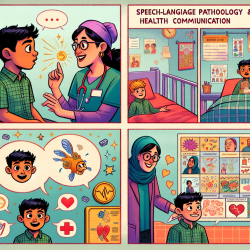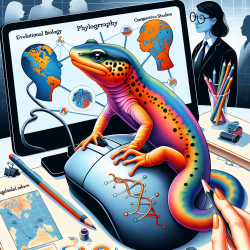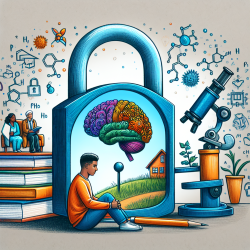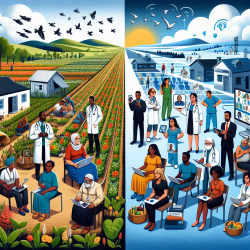The use of innovative methods to communicate complex health information is crucial, especially in the field of speech-language pathology. Recent research, particularly the study titled "The use of comics to promote health awareness: A template using nonalcoholic fatty liver disease" by Alemany-Pagès et al., provides valuable insights into how comics can be used effectively for health communication. This blog explores how practitioners can integrate these findings into their practice to improve outcomes for children.
The Power of Comics in Health Communication
The research by Alemany-Pagès et al. highlights several key benefits of using comics in health communication:
- Engagement: Comics are visually appealing and can capture the attention of children more effectively than traditional text-based materials.
- Comprehension: The combination of visual and narrative elements in comics helps in simplifying complex medical concepts, making them easier to understand.
- Retention: Studies have shown that information presented in a comic format is more likely to be remembered.
Applying Comics in Speech-Language Pathology
To leverage the benefits of comics in your practice, consider the following strategies:
1. Developing Custom Comics
Create comics tailored to the specific needs of your clients. For instance, if you're working with children who have speech sound disorders, a comic that illustrates the correct articulation of sounds can be very effective. The visual cues can help children remember the correct mouth positions and movements.
2. Incorporating Comics into Therapy Sessions
Use comics as a supplementary tool during therapy sessions. This can make sessions more engaging and interactive. For example, you can use comics to demonstrate social scenarios and appropriate communication behaviors, which can be particularly useful for children with social communication disorders.
3. Encouraging Home Practice
Provide comics as part of home practice materials. This not only reinforces what was learned during therapy sessions but also makes practice more enjoyable for children. Parents can also benefit from these materials as they offer a clear and engaging way to understand and support their child's therapy goals.
Evidence-Based Benefits
The use of comics in health communication is supported by robust evidence. For instance, Alemany-Pagès et al. found that comics effectively raised awareness and promoted health-conscious behaviors in the context of nonalcoholic fatty liver disease (NAFLD). While NAFLD is a different domain, the principles of engagement, comprehension, and retention are universally applicable.
Supporting Data
- A study by Houts et al. (2006) reviewed research on the role of pictures in health communication and found that visual aids significantly improved attention, comprehension, recall, and adherence.
- Jee and Anggoro (2012) explored the cognitive impacts of science comics and concluded that comics could enhance understanding and interest in scientific concepts.
- Tribull (2017) provided guidelines for using comics in science communication, emphasizing their effectiveness in conveying complex information.
Encouraging Further Research
While the current evidence is promising, more research is needed to explore the full potential of comics in speech-language pathology. Practitioners are encouraged to:
- Conduct small-scale studies within their practice to evaluate the effectiveness of comics in improving therapy outcomes.
- Collaborate with researchers to develop and test new comic-based interventions.
- Share their findings with the broader community to contribute to the growing body of evidence.
Conclusion
Incorporating comics into speech-language pathology practice offers a novel and effective way to enhance communication and engagement with children. By leveraging the visual and narrative power of comics, practitioners can improve comprehension, retention, and overall therapy outcomes. As we continue to explore and innovate, the potential for comics in health communication remains vast and promising.To read the original research paper, please follow this link:
The use of comics to promote health awareness: A template using nonalcoholic fatty liver disease.










